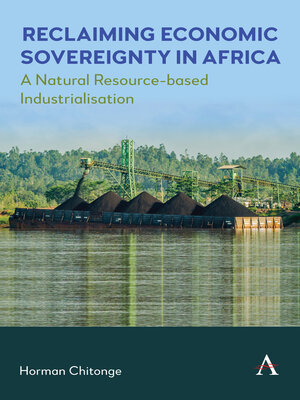Reclaiming Economic Sovereignty in Africa
ebook ∣ A Natural Resource-based Industrialisation Perspective · Anthem Africology Series
By Horman Chitonge

Sign up to save your library
With an OverDrive account, you can save your favorite libraries for at-a-glance information about availability. Find out more about OverDrive accounts.
Find this title in Libby, the library reading app by OverDrive.



Search for a digital library with this title
Title found at these libraries:
| Library Name | Distance |
|---|---|
| Loading... |
This book has examined the way African countries utilise their natural wealth. It has illustrated that weak economic sovereignty accounts for the irony that the most endowed continent on the planet has ended being the most impoverished. It is argued in this book that weak economic sovereignty in Africa has several implications, including the situation where the continent is unable to make the most out of its abundant natural wealth. Weak economic sovereignty on the continent is manifested in the low levels of financial and monetary sovereignty among African countries, but most importantly in low productive capabilities. The conditions of low productive capabilities prevailing on the African continent have created a situation where most African countries are locked into economically debilitating dependencies, including dependence on commodity export, such that they only get a tiny proportion of the value generated from natural resources extracted from their territories. The book has also argued that the persisting weak economic sovereignty on the continent is a clear indication that while African countries attained political sovereignty six decades ago, attaining economic sovereignty has remained an incomplete liberation project that requires a new strategy to accomplish.







